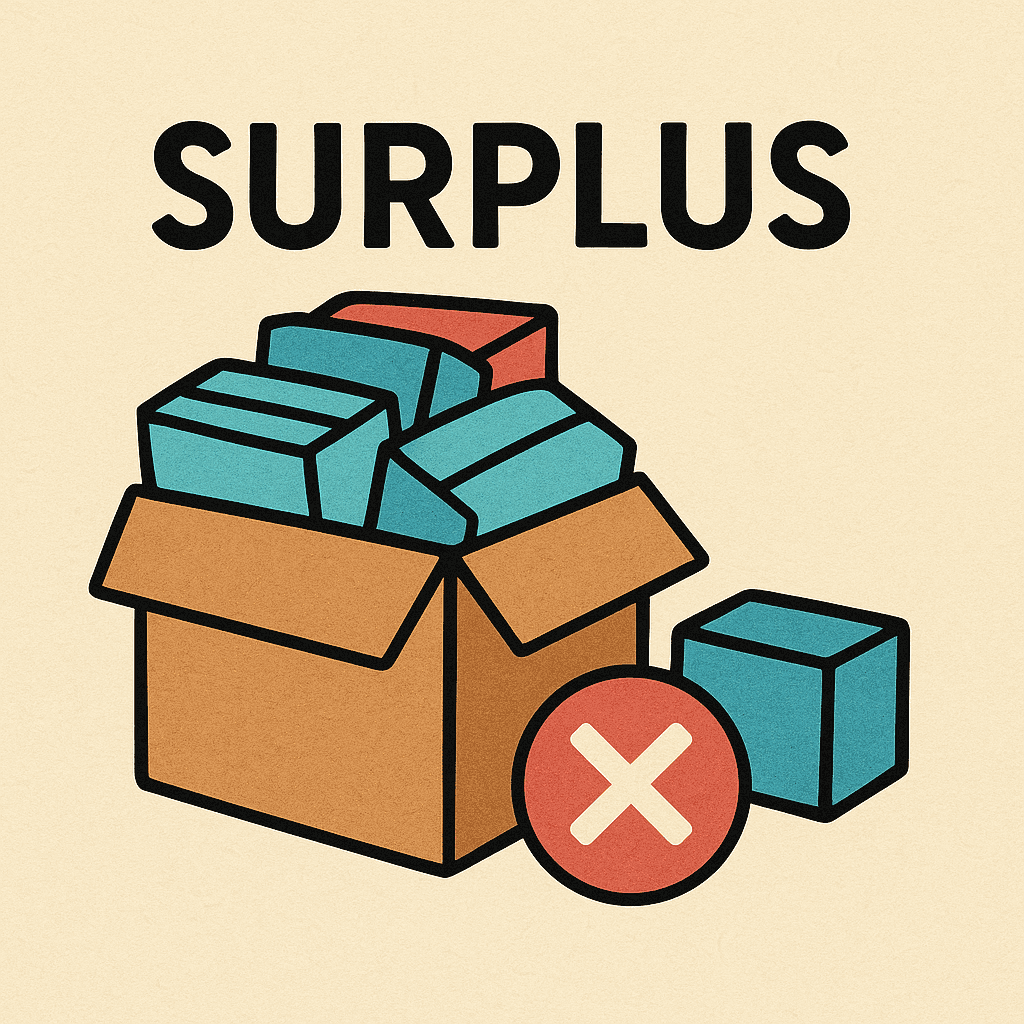Meaning
Surplus refers to an amount of something that is more than what is needed or used. It often describes extra goods, money, or resources.
As an adjective, it means "extra" or "more than necessary."
Grammar and Usage
- Part of speech: noun, adjective
- Noun usage: "a surplus of goods," "budget surplus"
- Adjective usage: "surplus equipment," "surplus staff"
Typical patterns:
- surplus + noun → "surplus food," "surplus energy"
- noun + surplus → "trade surplus," "budget surplus"
Common Phrases
- budget surplus – when a government has more income than expenses
- trade surplus – when exports are greater than imports
- surplus goods – extra items not immediately needed
- food surplus – extra food produced
Collocations
- adjective + surplus: large surplus, small surplus, annual surplus
- verb + surplus: generate a surplus, run a surplus, create a surplus
- surplus + noun: surplus cash, surplus stock, surplus labor
Examples
- The company reported a budget surplus for the third year in a row.
- Farmers had a surplus of crops after the unusually good harvest.
- The store is selling surplus goods at a discounted price.
- The country recorded a trade surplus due to strong exports.
- We should donate the surplus food to charity.
- The factory produced a surplus of equipment that was stored in the warehouse.
- A large surplus of labor led to high unemployment in the region.
- The manager used the surplus funds to invest in new technology.
Synonyms or Related
- excess
- extra
- remainder
- overflow
- oversupply
Antonym
- deficit
- shortage
- lack
- insufficiency
